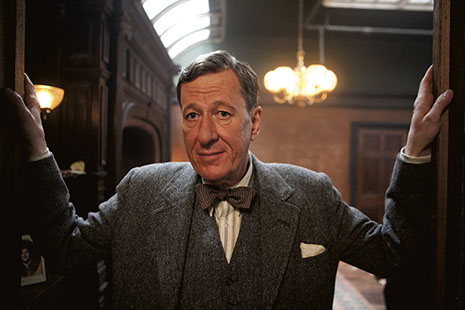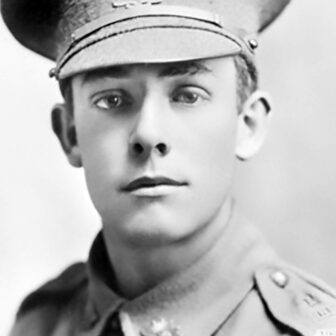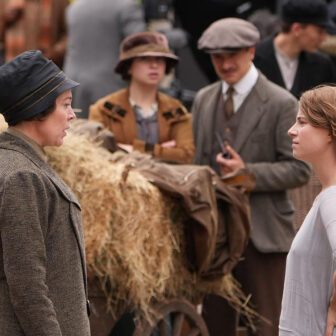THE remarkable success of The King’s Speech – commercially as well as at the film industry’s seemingly endless run of award nights – has not been without controversy. Among the most prominent critics have been the Hitchens brothers, Christopher and Peter – especially Christopher, whose battle with cancer has not apparently reduced his well-developed sensitivity to imposture.
Objecting to the film’s “gross falsification of history,” he points out that King George VI was in reality a staunch supporter of appeasement. The film’s climactic scene has the unglamorous king, played by the glamorous Colin Firth, delivering a speech to the empire at the outbreak of the second world war. It thereby contributes generously to the Windsor legend of wartime resistance to Nazism – you almost expect to see the bombs landing on Buckingham Palace as the credits start rolling. In reality, George VI was a loyal supporter of Neville Chamberlain, and departed so far from the principles of constitutional monarchy as to allow the prime minister to share a balcony with the royal family on his return to London after signing the Munich Agreement with Hitler in 1938.
Both Hitchens brothers point to other inaccuracies and evasions, such as the film’s failure to register that Churchill supported Edward VIII – the “conceited, spoiled, Hitler-sympathising Edward VIII,” as Christopher calls him. But only Peter appears troubled by the portrayal of Lionel Logue, the Australian speech therapist whose relationship with the king forms the main subject of the film. In particular, he worries over the behaviour of Logue in Westminster Abbey during a rehearsal for the coronation, when he provocatively sits in St Edward’s Chair, provokes the king to anger, and then goes on to say “rubbish, rubbish, rubbish” while skipping parts of the coronation oath during his coaching.
What sort of friend of the king, asks Hitchens, would ridicule his oath of office, “the keystone of authority in this country”? The sort of friend who never really said it, he concludes, and probably correctly. Certainly, the portrait of Logue presented in a book about the relationship between the two men – written by his grandson, Mark Logue, and journalist Peter Conradi – presents a very different kind of man to that of the film.
The King’s Speech: How One Man Saved the British Monarchy (Quercus, 2010) suggests plenty of other historical inaccuracies in the movie, but none more startling than in the portrayal of Logue, played by Geoffrey Rush. Based on recently discovered Logue papers and diaries, the book reveals a successful bourgeois Australian of his age who expatriated himself to Britain in the 1920s and never returned.
Logue was the Prince Alfred’s College–educated son of an Adelaide brewer. There’s no hint in the book of the larrikin who would cheekily occupy the chair of St Edward, mumble something about the previous “royal arseholes” that have sat there, and encourage the king to swear like a trooper in order to overcome his speech defect. Nor is there any suggestion that he insisted on calling the king “Bertie,” of which much is made in the film.
His consulting rooms might have been at the wrong end of Harley Street, but there’s no hint that they were as shabby as those depicted in the film. Nor was his real family home quite as modest as suggested there. In real life, Logue and his family lived in a Kensington flat and later in a twenty-five-room house with five bathrooms on five acres near Crystal Palace, complete with servants and tennis courts. It comes as no surprise to learn from Logue and Conradi that he served as a special constable in the 1926 general strike. So much for an antipodean preference for the underdog.
Above all, Logue was an elocutionist.
A new book by Joy Damousi, Colonial Voices: A Cultural History of English in Australia 1840–1940 (Cambridge, 2010) does not mention Logue himself, but it most tellingly evokes the culture that produced him. It was a culture that valued eloquence and saw in the science and art of elocution an agent of civilisation, self-improvement and moral progress. The teaching of correct pronunciation – which amounted to English as spoken among the middle and upper classes of London, shorn of any hint of provincialism – would help bring into being the very best type of British citizens. As Logue himself told a Perth meeting in 1916, the ability to use the mother tongue properly was “the first evidence of civilisation and refinement.”
Elocution was taught in schools, by private tutors and through self-help manuals, some of them originating in Australia. The skill was displayed on school speech nights, at poetry readings and through public recitals – at which Shakespeare and Dickens were especially popular. As Damousi shows so vividly, elocution was part of the British world of the nineteenth and early twentieth centuries, a world to which Logue belonged as surely in Australia as later in London.
In this world, the quality of one’s public speech was a mark of individual character and social standing. In particular, Australian speech – assumed to be naturally unattractive and inferior to a metropolitan standard – could be improved through appropriate training of the mind and body. As a successful teacher of elocution in Adelaide and then Perth in the early decades of the century – and like so many such teachers, also an admired public performer at recitals – Logue knew that he had cultural capital that made him a “colonial” of a very specific sort: the middle-class British–Australian sort, one who could live and work with relative ease in the heart of the empire. The film has a scene in which Logue is rejected by a local amateur dramatic society for the role of the deformed Richard III on account of his “colonial” accent. But all the signs are that the Australian slipped rather comfortably into London life, and that he would have done so whether or not he had ever treated the king for his stammer.
This is much clearer in Logue and Conradi’s book than in the acclaimed film, which instead seeks to dramatise the class differences between the two men in order to make their supposed friendship all the more unlikely. The book does not so much reject this idea outright as gently revise it. Logue claimed to have treated the king “just as any other patient,” but this is clearly a nonsense. His letters to him while he was still the Duke of York in the early 1930s seem more to resemble those of a jilted lover than the “friend” of the film. Logue wrote to the prince in 1934 that “although I follow all you do and say with the greatest interest, it is not the same as seeing you personally, and I was wondering if you could spare the time out of your very busy life to come to Harley St – just to see that all the ‘machinery’ is working properly.” The film maintains its illusion of intimate friendship, in part, by pretending that the two of them only met in 1934, shortly before the prince became King George VI. In reality, Logue appears to have begun treating him as early as 1926. There were clearly long periods during which they saw nothing of one another.
When they did, Logue seems to have been notably deferential, bowing over the king’s and queen’s hands, and evidently enjoying his close encounter with the magic of royalty. He savoured the royal baubles the king offered him, such as the MVO (Member of the Victorian Order), and was apparently rendered breathless when in the presence of female members of the royal family. “Royal and lovely,” he said of George’s wife Queen Elizabeth, later the Queen Mother, “the loveliest woman I have ever seen.” “The greatest thing in my life, your Majesty, is being able to serve you,” Logue told the new king on the evening of his coronation. As Mark Logue and Peter Conradi remark, the tone of Logue’s writings to and about the royals can seem rather “fawning.”
Why, then, are we confronted with something of an Aussie larrikin in the film? Is it because modern popular culture cannot conceive of an Australian except as the city cousin of Crocodile Dundee? An Australian–Briton of Logue’s generation, one with a deep respect for monarchy and a sense of ownership over British culture as strong as if he had been born in the home counties, is literally unthinkable in the world of modern cinema. To have presented Logue behaving towards the king and his family in anything like the manner his letters and diaries suggest would have been to make him un-Australian.
Queen Victoria’s Mr Brown may well have been, in real life, the very Scottish Scotsman portrayed by Billy Connolly in the film of a few years back. But if he had not been, Mrs Brown would surely have made him so. For similar reasons, Logue had to be made less British and more Australian. If The King’s Speech had dealt with him any other way, he would have become just another Englishman. •




